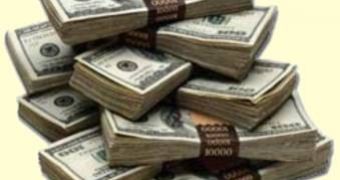The brain has a very curious way of "acting" sometimes. That's why we can even perceive as being "the real thing" what's in fact just a placebo, with positive or negative consequences. Researchers have been puzzled by the strong placebo effect in many persons. Now they have linked this to a brain nucleus also involved in the anticipation of other types of rewards, like monetary gain.
MRI scans have revealed how placebos boosted the levels of the neurotransmitter dopamine in the forebrain's nucleus accumbens. Nucleus accumbens had been found to be turned on also by other types of expected rewards, like money or food. Researchers believe that this shoot of dopamine in anticipation of feeling better can explain the effects of the placebo on the overall health.
A team led by Jon-Kar Zubieta, a neurologist at the University of Michigan, checked this link with PET scans to see changes in the brains of 14 healthy people. The subjects were told that a needle was going to be inserted into their jaws. They expected pain, but in reality a sedative chemical had been placed on the skin.
Brain images were compared during the harm expectation with those taken once the volunteers were actually in pain, when another needle was inserted on the other non-sedated jaw side.
The volunteers then received a placebo (an intravenous saline solution). Brain scans suddenly revealed a dopamine boost, and subjects reported relief. Those with the strongest placebo effects also presented the highest dopamine discharge in the nucleus accumbens.
After that, researchers assessed neural activity with the help of functional magnetic resonance imaging (fMRI). The volunteers played a game where they could gain money rewards. Anticipation of a gain intensified the activity in the nucleus accumbens, and this increase was the highest in patients that had a stronger reaction in the needle experiment.
"The study confirms there is a link between the placebo effect and expectation of reward. The research might help scientists harness the placebo effect to aid patients. For example, scientists are looking at ways to determine when the placebo effect is more or less active, and what disrupts the release of dopamine.", said Raul de la Fuente-Fern?ndez, a neurologist at Hospital A. Marcide in Ferrol, Spain.
The research team is going to investigate how the placebo effect is modeled by gender and genetics.

 14 DAY TRIAL //
14 DAY TRIAL //